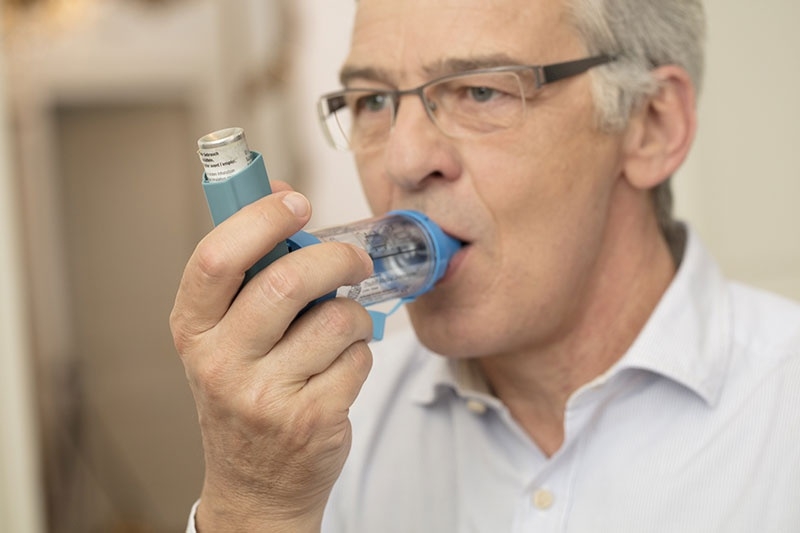A bronchospasmolysis test, also known as a reversibility test, is a test performed with medication and is often used in diagnosing asthma.
For a bronchospasmolysis test, a lung function test is performed before and after administering a medication that expands the airways (bronchodilator). In people with asthma, bronchodilators cause constricted bronchial tubes to expand.
It can provide information about
- Effectiveness of medications that expand the bronchial tubes, such as salbutamol, in improving lung function, especially forced expiratory volume in 1 second (FEV1)
- Severity of an obstruction
Procedure
FEV1 is measured with a spirometer 15 minutes after inhaling the medication and is compared to the measurement before inhalation. If the result is better than the value measured before inhaling the medication (increase of 200 mL or at least 15 % compared to the initial value), the medication has helped, meaning an asthma diagnosis is likely.
Duration
Approx. 1.5 hours consultation with the doctor, preparation, blood gas analysis, lung function testing, bronchospasmolysis

